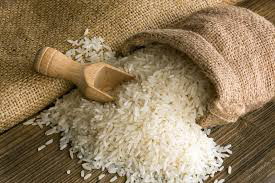Iran, the principal driver of India's rice exports due to its population's preference for the aromatic, long-grained basmati variety, has turned protectionist and clamped curbs on the import of the grain from India.
With Tehran insisting that Indian exporters of basmati must get stamps of quality approval from a multiplicity of designated global agencies, the country's basmati exports have slumped sharply since January 2014, Indian Financial Express newspaper reported on May 1.
India's basmati exports to Iran, which in fiscal year 2014(FY14) accounted for 40 percent of the its total exports of the speciality grain, dropped from 130,000 tonnes in January 2014 to 89,387 tonnes in February and further to 55,210 tonnes in March, as per data furnished by the All India Rice Exporters' Association (AIREA).
Sources in the commerce ministry told FE Iranian authorities have been asking India's exporters since January 2014 to furnish a series of documents on the good agricultural practices (GAP), ISO 22000, which deals with food safety management and packaging protocols, besides the "non-genetically modified crop" certification. Iran, the sources added, has also revised the "accepted level" of arsenic in basmati rice from 150 ppm (parts per million) to 120 ppm and asked Indian exporters to put a tag on each pack of consignment for ensuring traceability in case arsenic content is found more than the specified limit.
"We do not have any issue in meeting new Iranian regulations, but getting certification for multiple agencies is time consuming. This has slowed down exports in the last few months," said an official in the commerce ministry.
Vijay Setia, former president of AIREA and a leading exporter of the basmati variety, said shipments to Iran were likely to decline marginally in the current year. "We are taking measures to reduce the arsenic content in our rice by educating farmers besides educating exporters about maintaining stringent quality norms," he said.
Meanwhile, the commerce ministry is learnt to have asked Iran to send a team of experts to inspect rice procurement and processing facilities in the country. The ministry expects this will help allay Iran's apprehensions over the quality of Indian rice.
Indian basmati rice exporters view Iran as a key market and are planning to adhere to all standards prescribed by the Iranian authorities. India's basmati rice exports to Iran constitute over 30 percent of its total basmati rice exports. They are also reportedly seeking a single-window clearance for all the export shipments, according to local sources. India has set up a rupee settlement mechanism with Iran from April 2012 to avoid sanctions from the West. India exported around 4 million tonnes of basmati rice in FY 2013-14 (April - March), up about 14 percent from around 3.5 million tonnes in FY 2012-13.






